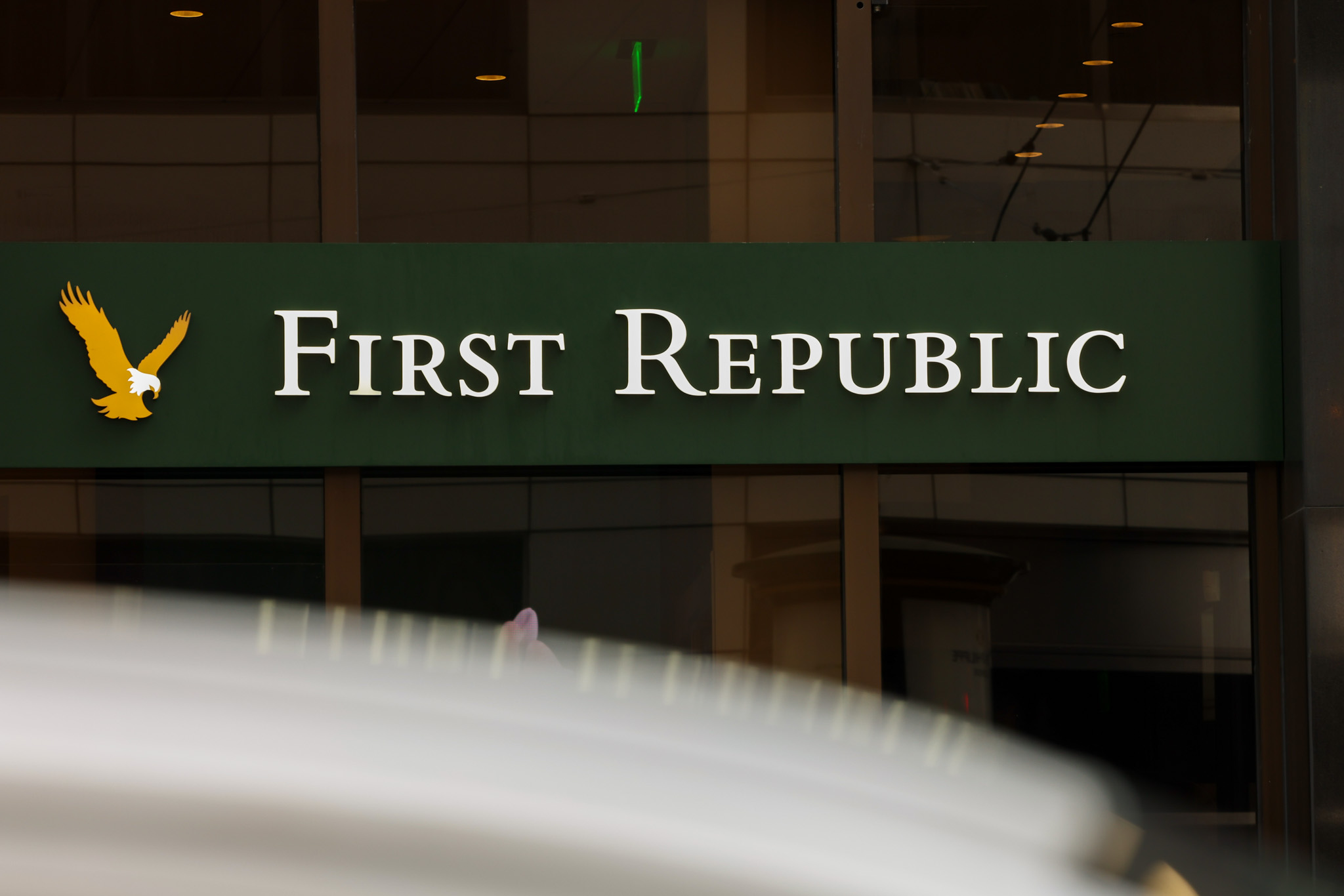Bank stocks plunged on Wednesday afternoon amid continuing turmoil in the sector following the sudden collapse of Silicon Valley Bank last week.
That included First Republic, a San Francisco-based regional bank that caters largely to high-net-worth clients, offering personal and business banking and wealth management. The bank counts local tech startups and founders among its clientele, and is the 14th largest bank in the country with around $213 billion in assets.
First Republic suffered a downgrade on Wednesday from two credit agencies, sending its stock down more than 20%.
S&P Global Ratings lowered First Republic’s credit rating to “BB+” from “A-,” writing in a note that it believes the risk of deposit outflows is elevated. Fitch downgraded First Republic, to BB from A-, citing potential issues with deposits.
Moody’s—another credit rating agency—put First Republic this week on a watchlist of six banks at risk of downgrade, along with Western Alliance Bancorp., Intrust Financial Corp., UMB Financial Corp., Zions Bancorp. and Comerica Inc.
Among the issues the rating agency identified were uninsured deposits, unrealized losses in its bond portfolios and a low level of capitalization compared to peer institutions.
First Republic executive chairman Jim Herbert told CNBC on Monday that the bank was not seeing large deposit outflows and voiced confidence in the funding from JPMorgan it announced on Sunday that brought its total available liquidity to $70 billion.
First Republic also has additional capital available from a new $25 billion Federal Reserve program that can provide short-term loans for banks that put up securities such as U.S. Treasuries and mortgage-backed securities as collateral. Under the program, the assets will be valued at par allowing banks to access liquidity without quickly selling securities at a major loss.
A spokesman for First Republic said the bank had no further comment at this time.
Matthew Faulkner, a professor of finance at San Jose State University, said that just because a credit rating is downgraded it doesn’t mean an organization lacks ability to pay back the debt eventually.
“A credit rating downgrade is never good news, but it may not be sometimes as exaggerated as people think,” Faulkner said. “The first place you look when a bank fails, of course, is what other banks are similar to that.”
Jay Ritter, a professor of finance at the University of Florida, added that “rating agencies normally follow rather than lead in terms of the stock price.”
“It’s more that the rating agencies are paying attention to the market and saying, ‘We’d better pay attention, and there’s a reason the market is concerned with many banks,’” Ritter said.
Adding to banking worries, Swiss bank Credit Suisse acknowledged “material weaknesses” in its financial reporting that contributed to market turbulence on Wednesday.
In the case of Silicon Valley Bank (SVB), the bank had piled money into U.S. Treasury bonds that declined in value as the Federal Reserve ratcheted up interest rates.
Last week, SVB disclosed that it was selling securities at a $1.8 billion loss and announced a capital raise, spooking investors and leading to a run on the bank. The bank’s sudden closure last Friday set off heavy volatility among regional banking stocks, with First Republic shares down close to 70% since federal regulators shut down SVB.
Since then, First Republic customers in the Bay Area have taken to Twitter to say they’re sticking with the bank.
“The customer service and quality of everything First Republic has done as our primary bank is absolutely second to none,” wrote Austen Allred, CEO of Bloomtech on Twitter.
“Standing by them,” wrote Greg Kuzia-Carmel, a Menlo Park restauranteur.
I respect the hell out of people who look death in the face and don’t blink. Don’t even bend an inch. Don’t change who they are.
— tyler hogge (@thogge) March 14, 2023
I’m a @firstrepublic customer for life.
They essentially said; We are here to serve you. See you tomorrow.
Bad ass. See you tomorrow.
Ritter added that when deposits are withdrawn, however, banks may eventually be forced to sell assets to keep capital above regulatory thresholds, thereby diluting shareholders.
He sees the possibility of more closures and mergers in the banking sector, though he noted that “the vast majority of banks have sound balance sheets, and there’s nothing to worry about.”
“If you get into this situation when deposits are being withdrawn, it creates a situation where the bank might have to take an action that will dilute the existing shareholders,” Ritter said. “That is a reason why the stock price should rationally fall.”
